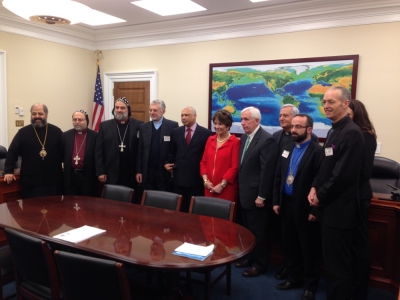3 Things You Should Know About the New International Religious Freedom Bill
The bill is backed by Catholic, Jewish, and Muslim leaders, and Republicans and Democrats

In a nation where bitter political divisions are becoming the norm, many are hailing the political and religious unity found in this legislation.
Writing in The Hill Dec. 5, former White House counsel to Bill Clinton Lanny Davis called this new bill's deeper protections for international religious liberty a "golden opportunity" for unity in a polarized country and represents a "bipartisan purple moment."
The bill's two original co-sponsors are Congressman Chris Smith, a New Jersey Republican famous for his defenses of the unborn and political prisoners in repressive countries, and Rep. Anna Eshoo, a liberal Democrat from California who co-chairs the Religious Minorities in the Middle East Caucus.
"[T]he importance of religious freedom is interwoven in the history of my family as it is in the history of the United States. The freedom of religion embodied in the First Amendment is one of the most important and foundational rights in our country and it is what makes our nation a shining beacon of freedom and tolerance for the entire world," Eshoo said in a press release Tuesday, herself the daughter of Middle Eastern Christians who fled persecution.
Among the bills supporters outside of the government are a smattering of prominent religious and civil society leaders including Cardinal Donald Wuerl, archbishop of Washington, D.C.; David Novak, president of the Union for Traditional Judaism; and Imam Talal Y. Eid of the Islamic Institute of Boston.




























